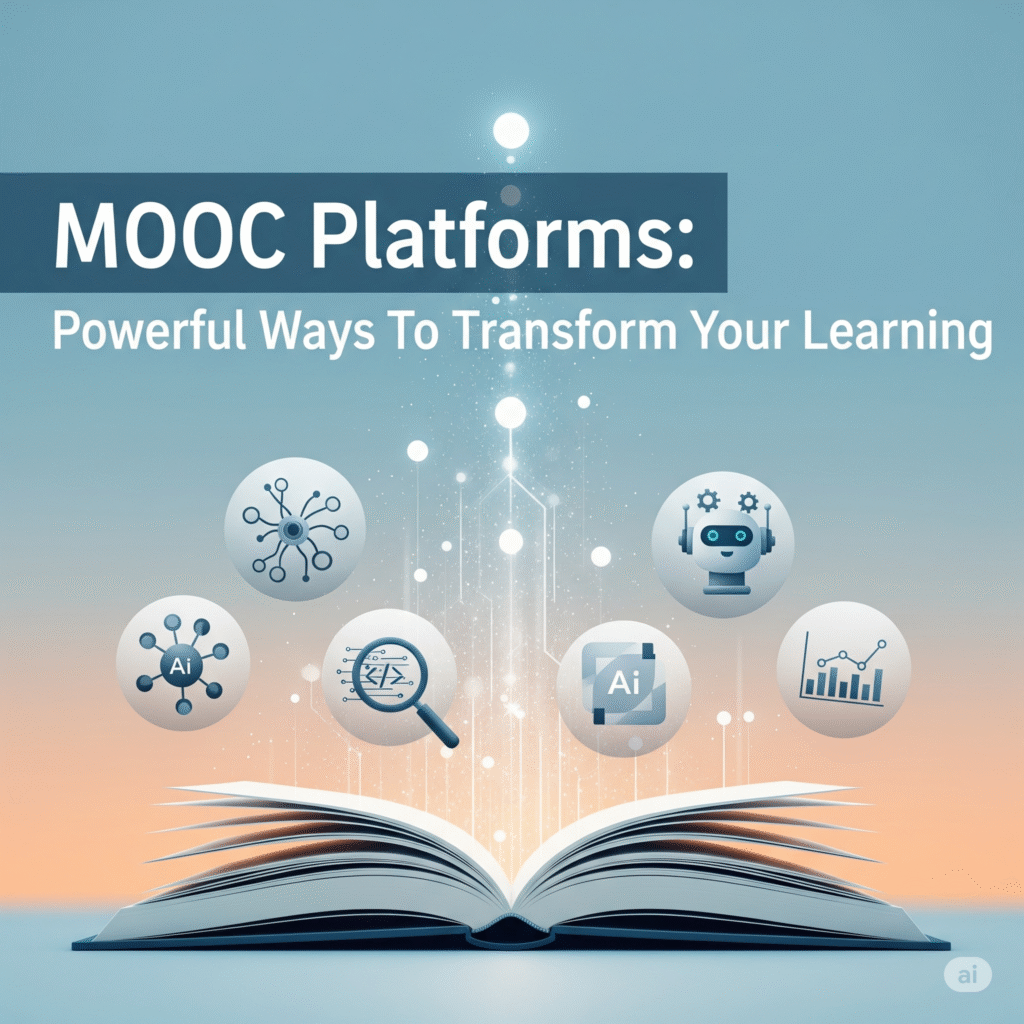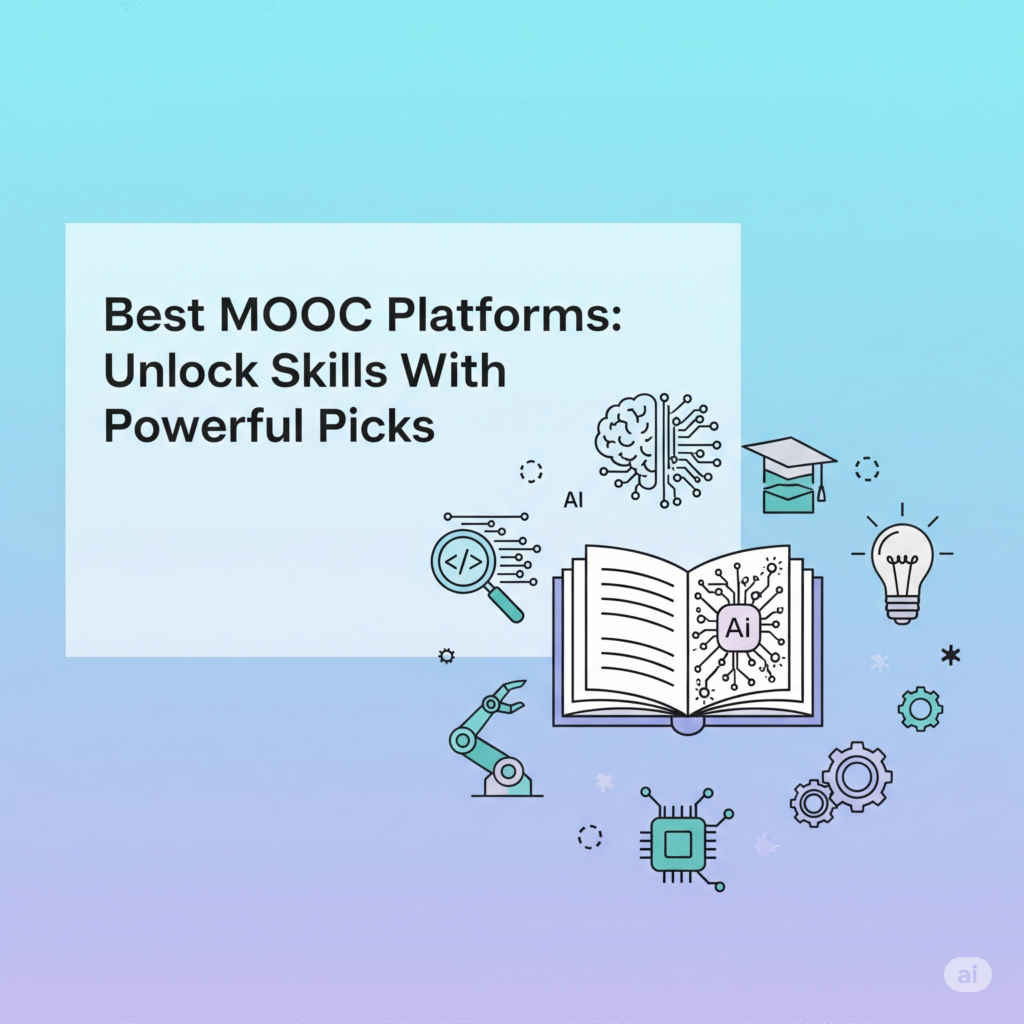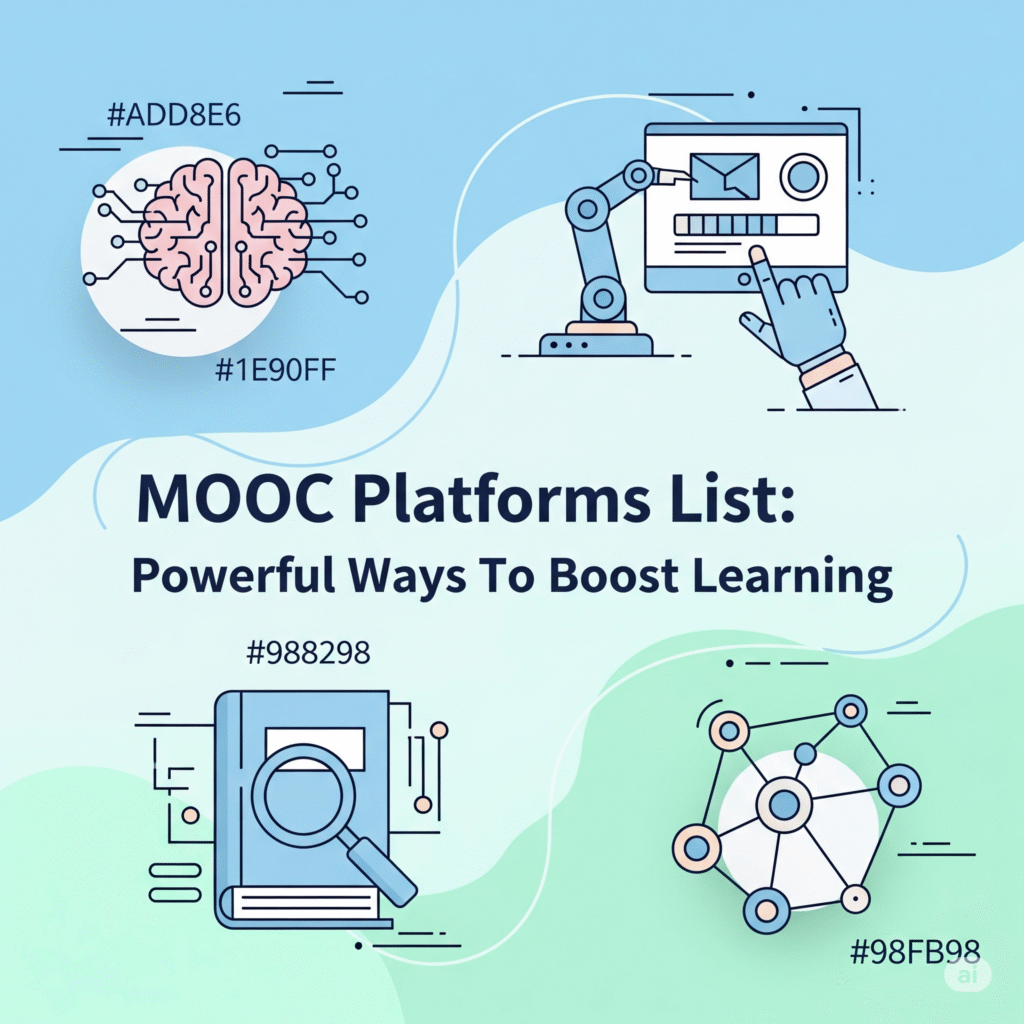MOOC platforms are changing how students learn by making courses from top schools and experts easy, flexible, and affordable—anytime and anywhere.
Learning today looks nothing like it did a few years ago. With the internet and smart tools, education has moved beyond classrooms and into your hands. One of the biggest changes? The rise of mooc platforms.
MOOC stands for Massive Open Online Courses. These platforms give you access to courses from top universities, industry experts, and professionals around the world. You can join classes on almost anything—coding, business, art, or even personal development—without the limits of location or a fixed schedule.
What makes mooc so popular is their flexibility. You decide when and where to learn. Many courses are free or low-cost, which means quality education is now accessible to more people than ever before. For students, this opens up chances to explore new skills, prepare for careers, or even add extra certifications to their resume.
The best part is that mooc platforms make learning feel modern and practical. You’re not just reading textbooks—you’re watching videos, joining discussions, and working on real projects. It’s a way to study that actually fits your lifestyle and keeps you motivated.
Table of contents
- Best MOOC platforms in 2025 for smart learning
- Coursera vs edX: Which MOOC platforms win?
- Find the best free options for real learning
- Top-rated MOOC platforms providers you should try
- MOOC platforms user experience that really matters
- MOOC platforms with AI-focused courses to explore
- Technology MOOCs: Best MOOC platforms for tech lovers
- Data science MOOCs on leading MOOC platforms
- Machine learning MOOC platforms for beginners
- Cybersecurity MOOCs offered by trusted MOOC platforms
- MOOC platforms certificates value for your career
- Accredited MOOC platforms with trusted certificates
- Professional certification via top MOOC platforms
- FAQs: MOOC platforms
Best MOOC platforms in 2025 for smart learning

Find the platforms that make online learning easier. Learning online is now more common than ever. With so many choices, it’s not always simple to know which MOOC platforms are worth your time. In 2025, students want flexible study options, trusted certificates, and courses that keep up with new technology. The right MOOC give you all three in one place.
Coursera
Coursera is one of the most popular MOOC platforms today. It partners with top universities and companies, which means you get high-quality courses. Many of its programs come with certificates that employers respect. The platform also offers short lessons for busy learners who want to build skills step by step.
edX
edX is another favorite among students. It provides free and paid courses from leading universities like Harvard and MIT. One big plus is its professional certificates, which help boost career opportunities. edX is also known for its smooth interface, making learning less stressful. If you’re into tech, you’ll find plenty of AI and data science classes here.
Udacity
Udacity focuses more on career-driven skills. It’s one of the MOOC that highlight nanodegree programs in fields like machine learning, programming, and digital marketing. These are designed with input from real companies, so you learn what the industry actually needs. For students aiming at tech careers, Udacity is a smart pick.
MOOC platforms in 2025 continue to evolve with AI tools, interactive videos, and flexible schedules. Choosing the best one depends on your goals—whether you want a free class to explore a subject or a full program that builds your career.
Coursera vs edX: Which MOOC platforms win?
Two giants of online learning compared for you. When it comes to online study, Coursera and edX stand out as two of the most trusted MOOC platforms. Both give access to top universities, flexible schedules, and certificates that carry value. But the real question is—which one fits you best in 2025?
What Coursera offers
Coursera partners with global universities and companies to offer thousands of courses. It’s one of the MOOC platforms that focus on career growth with certificates, degrees, and skill-based training. The platform also has short “Guided Projects” that help you learn quickly with hands-on practice. If you want flexible study with a wide mix of subjects, Coursera is a strong choice.
What edX delivers
edX is well known for its connection with universities like Harvard and MIT. It provides a mix of free and paid courses, which makes it budget-friendly for many students. Among MOOC, edX stands out for its MicroMasters and professional certificates. These programs are great if you’re aiming for deeper learning or future academic credit.
Which one should you choose?
Both platforms are leaders, but your choice depends on your goals. If you want quick skill-based learning and career-focused paths, Coursera might win for you. If you want academic-style courses with strong university branding, edX is the smarter pick. At the end of the day, both MOOC platforms give you quality learning, and you can’t really go wrong with either.
Free MOOC platforms reviews students can trust
Find the best free options for real learning
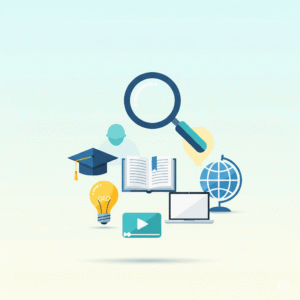
Not every student can afford expensive courses. That’s where free MOOC platforms come in. They make learning possible without heavy costs, while still giving you access to valuable skills and knowledge. In 2025, free options are better than ever, and students trust them to deliver real learning experiences.
Coursera free courses
Coursera offers many courses at no cost. You can join free classes in subjects like business, computer science, and health. While certificates often require payment, the learning itself is still high-quality. Among MOOC platforms, Coursera’s free library is one of the most student-friendly.
edX free learning mooc platforms
edX also provides free access to a wide range of university-level courses. You only pay if you want an official certificate. For students who want flexible learning without worrying about fees, edX is one of the most reliable MOOC.
Other free options
Apart from Coursera and edX, platforms like FutureLearn and Khan Academy are popular choices. They focus on easy access and interactive study materials. These free MOOC platforms help students learn at their own pace without pressure, which is why so many rely on them today.
Free MOOC platforms continue to grow in popularity because they remove financial barriers. For students who want skills without debt, these options are worth exploring and can make a real difference in their studies.
Top-rated MOOC platforms providers you should try
Trusted names students can count on in 2025. If you’ve ever searched for online courses, you know the options can feel endless. Not all platforms are equal though. Some really stand out because they’re easy to use, offer great courses, and actually help you build skills that matter. Let’s check out a few of the best MOOC platforms students are loving right now.
Coursera
Coursera is one of the biggest names out there. It partners with top universities and even big companies to give you courses that feel real and practical. Whether you want to learn something quick or go all-in with a degree, Coursera makes it flexible and student-friendly.
edX
edX has a strong academic vibe. It’s backed by places like Harvard and MIT, so you know the courses are solid. You can find both free classes and advanced programs here. That balance makes edX one of the most reliable MOOC platforms for students who want both learning and credibility.
Udacity
Udacity is perfect if you’re more into tech. It builds its nanodegree programs with big names in the industry, so you’re learning the skills companies are actually hiring for. From AI to data scienc, Udacity is a favorite for students who want career-ready knowledge.
At the end of the day, the best MOOC aren’t just about watching videos—they’re about giving you skills you can actually use. Choosing one of these trusted providers in 2025 could be your first step toward something bigger.
MOOC platforms user experience that really matters
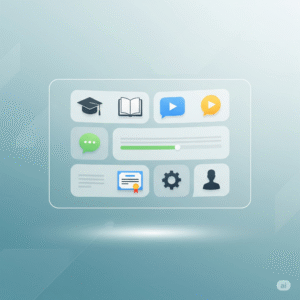
Why smooth learning feels just as important as good content? When you’re learning online, the way a platform feels can make or break your study flow. Even the best courses can feel boring if the site is hard to use. That’s why user experience is now a big deal with MOOC platforms. Students want learning to feel smooth, simple, and stress-free.
Easy navigation counts
Nobody likes getting lost in endless menus. Good MOOC platforms make it easy to find your courses, track progress, and jump back in without confusion. A clean dashboard saves time and helps you focus on learning instead of clicking around.
Mobile learning on the go
Most students don’t sit at a desk all day. You’re probably checking lessons on your phone between classes, commutes, or even late at night. That’s why modern MOOC platforms focus on strong mobile apps. A quick, responsive design means you can learn anywhere, anytime, without lag or stress.
Interactive features keep you engaged mooc platforms
It’s not just about watching videos anymore. The best MOOC add quizzes, discussion boards, and peer feedback. These features turn passive learning into something interactive, so you actually stay engaged and remember more.
In the end, user experience is what keeps students coming back. MOOC platforms that are simple, mobile-friendly, and interactive stand out in 2025. They don’t just teach—they make learning feel enjoyable.
MOOC platforms with AI-focused courses to explore
Learn the skills that power today’s tech world. Artificial intelligence is everywhere right now, from chatbots to self-driving cars. If you want to get ahead, learning AI skills online is a smart move. The good thing is that many MOOC platforms now offer specialized AI courses that are easy to access and follow.
Coursera and university-led AI learning
Coursera partners with top universities like Stanford and DeepLearning.AI to offer AI programs. These courses cover everything from machine learning basics to advanced neural networks. MOOC platforms like Coursera make it simple for students to get high-quality lessons without needing to step into a classroom.
edX and career-ready AI certificates
edX has built a strong space for tech learners. Their AI-focused tracks include certificates from MIT, Harvard, and IBM. These courses are designed for real-world application, helping students turn theory into projects. Many students prefer these MOOC platforms because the certificates add real weight to their resumes.
Udacity and project-driven AI programs
Udacity stands out with its nanodegree programs. Instead of only theory, you work on hands-on projects like building chatbots or training models. These programs keep you engaged and ready for jobs in AI. Many learners feel this makes MOOC more exciting and practical compared to traditional learning.
Today, you don’t need to wait for a university seat to dive into AI. With MOOC platforms offering flexible and AI-focused programs, you can start learning right away and stay ahead of the trend.
Technology MOOCs: Best MOOC platforms for tech lovers

Learn coding, AI, and more without leaving your desk. Tech skills are everywhere right now. From coding apps to building AI tools, these skills can shape your future. The good news? You don’t need to sit in a lecture hall to learn them. Thanks to online learning, MOOC platforms bring the best tech courses straight to your screen.
Coursera: Big names, real skills
Coursera is packed with courses from top universities and companies like Stanford and Google. Want to learn Python, cloud computing, or even machine learning? It’s all here. The best part is that certificates from these courses actually look good on your resume. That’s why so many students trust Coursera over other MOOC platforms.
edX: Go deeper into tech mooc platforms
If you’re serious about building a strong foundation, edX is worth checking out. You’ll find computer science and IT programs designed by MIT, Harvard, and Microsoft. These aren’t just surface-level lessons. They go deep into coding, software design, and AI systems. For many students, edX is one of the most reliable MOOC out there.
Udemy: Fast and practical learning
Need something quick and affordable? Udemy has you covered. Its courses focus on hands-on projects like web development, app building, and even ethical hacking. Unlike other MOOC platforms, Udemy is more about “learn it today, use it tomorrow.” It’s perfect if you want to build skills fast without spending a lot of money.
Tech keeps moving forward, and you don’t want to fall behind. With the right MOOC platforms, you can keep learning new skills, stay ahead, and prepare for future opportunities—all from the comfort of your laptop.
Data science MOOCs on leading MOOC platforms
Learn to master data with top online courses. Data science is one of the most in-demand skills today. From social media trends to business decisions, data is behind everything. The best part? You don’t need a classroom to start. With leading mooc platforms, you can explore data science from scratch or sharpen your advanced skills—all from your laptop.
Coursera: Learn from the best
Coursera offers data science courses from world-class universities like Johns Hopkins and Stanford. You’ll find beginner-friendly paths covering Python, statistics, and visualization. For advanced learners, Coursera includes deep dives into AI, machine learning, and big data. Since the courses are linked to top names, the certificates carry real weight when you’re applying for jobs.
edX: Build a strong foundation
On edX, you can enroll in professional data science programs from MIT and Harvard. These courses don’t just teach theory. They give you practical exercises where you clean datasets, build predictive models, and solve real-world problems. Many students like edX because it pushes them to think like true data scientists. This makes it one of the most reliable mooc platforms for serious learners.
Udacity: Focus on career growth mooc platforms
Udacity takes a more career-focused approach. Their Nanodegree programs in data science guide you through real projects, with feedback from industry experts. You’ll practice using tools like SQL, Python, and TensorFlow—the same tools used by tech companies. This hands-on style prepares you for internships or full-time jobs. Students who want industry-ready skills often find Udacity a better choice than other MOOC.
Data science is growing fast, and starting early gives you a big advantage. These platforms make it easier to learn at your own pace, build a portfolio, and stay ready for future opportunities.
Machine learning MOOC platforms for beginners

Kickstart your AI learning journey the smart way. Machine learning might sound complex, but starting with the right course makes it much easier. That’s where MOOC platforms step in. They give you structured lessons, hands-on projects, and real-world examples—all without making you feel overwhelmed. For beginners, these platforms are like friendly guides who explain big concepts in small, digestible steps.
Why MOOCs are perfect for beginners
Traditional learning can feel heavy with textbooks and theories. MOOC platforms change that by offering bite-sized videos, quizzes, and coding exercises. You learn at your own pace, repeat lessons if needed, and build skills gradually. Many of these platforms also connect you with global learners, so you’re not on this journey alone.
Popular platforms to explore
If you’re just starting out, check out beginner-friendly courses on Coursera, edX, and Udemy. These MOOC often start with basics like supervised learning, Python, and simple models before moving to advanced topics. Some even provide free trials or financial aid, so cost doesn’t hold you back.
Learning machine learning today is easier than ever, thanks to these platforms. They not only teach you the skills but also boost your confidence. With consistent practice, you’ll move from basic concepts to building your own models faster than you think.
Cybersecurity MOOCs offered by trusted MOOC platforms
Learn cybersecurity skills the easy and flexible way. Cybersecurity is everywhere right now. Think about it—your social accounts, online payments, and even gaming profiles all depend on strong security. That’s why learning these skills matters. The good news? Trusted MOOC platforms make it super easy to get started without spending a lot or sticking to a strict schedule.
Why students pick cybersecurity MOOCs
Students love these courses because they fit into busy lives. On MOOC platforms, you can start small with basics like protecting passwords or spotting scams. As you go, you’ll explore deeper topics such as ethical hacking, data privacy, and network security. It’s step-by-step learning that actually makes sense.
Where to find the best courses mooc platforms
Top providers like Coursera, edX, and Udemy offer some of the most popular cybersecurity MOOCs. These MOOC platforms team up with universities and tech experts, so you’re learning from people who actually know their stuff. Many courses even include hands-on labs, where you practice solving real problems—kind of like a test drive before the real thing.
Why it’s worth your time
Cybersecurity isn’t just about protecting your own data. It’s also about building a future career. Certificates from well-known MOOC look great on a resume and can help you stand out when applying for jobs. Whether you’re aiming for IT, business, or tech roles, these skills give you an edge.
In short, cybersecurity MOOCs are flexible, practical, and a smart move for students who want to stay safe online while preparing for future opportunities.
MOOC platforms certificates value for your career
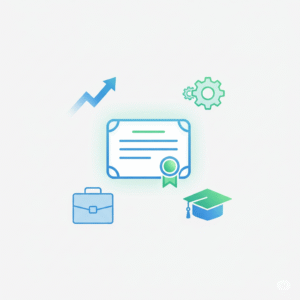
Why online certificates matter more than you think? Getting a certificate from MOOC platforms can be a real game-changer for your career. These certificates show that you’ve built new skills, even if you didn’t sit in a traditional classroom. For students today, they’re proof that you’ve taken the initiative to learn something practical and useful.
Certificates build real credibility
When you complete a course on trusted MOOC platforms, the certificate often comes from big universities or top companies. Think names like Google, Harvard, or IBM. Adding that to your resume makes it clear you’ve learned from experts. Employers love this because it shows you’re serious about growth.
They open up more opportunities
Not every job requires a full degree, but most want to see proof of skills. That’s where MOOC certificates shine. They make your LinkedIn profile stand out and help during interviews. Many students even use them to switch fields, like moving from business into data science or cybersecurity. With MOOC, you can explore these paths without a huge cost.
You gain confidence and skills
Beyond just the paper, finishing a course gives you hands-on knowledge. You can apply it right away in internships, freelance projects, or even side hustles. Knowing you learned something useful—and having proof of it—boosts your confidence when stepping into the job market.
In today’s world, certificates from MOOC platforms are more than just badges. They’re stepping stones that can help you land jobs, explore new industries, and show employers you’re ready for the future.
Accredited MOOC platforms with trusted certificates
Pick courses that actually count. Let’s be real—not every online course is worth putting on your resume. That’s why it’s smart to look for MOOC platforms that offer accredited certificates. Accreditation simply means your course is officially recognized by schools, employers, or professional groups. In short, it gives your hard work real value.
Why this matters?
When you study on accredited MOOC, you’re not just watching videos. You’re learning from top universities and companies. Imagine having Stanford, MIT, or Google on your certificate—that instantly grabs attention. Employers know your learning came from trusted experts, not just random tutorials.
Trusted platforms to check out
Some of the most reliable MOOC platforms include Coursera, edX, and FutureLearn. Coursera lets you earn certificates from places like Yale or companies like Meta. edX has big names like Harvard and MIT. FutureLearn connects you with top European universities. And the best part? These certificates are verifiable, so anyone can confirm they’re real.
How this helps students
Accredited certificates do more than show you took a course. They prove you completed real assessments and gained skills that count. Many students use them to strengthen grad school applications, stand out for internships, or land entry-level jobs. Plus, the courses are flexible and affordable, so you can learn at your own pace without breaking the bank.
Choosing accredited MOOC means your time and effort pay off. You’re not just gaining knowledge—you’re building credibility that can open doors for your future.
Professional certification via top MOOC platforms

Learn skills, earn certificates, and boost your future. Getting a professional certificate doesn’t have to feel stressful. Thanks to MOOC platforms, you can learn online and still walk away with a credential that actually counts. These platforms team up with big-name universities and companies, so your certificate isn’t just a piece of paper—it shows you gained real skills and passed real assessments.
Why these certificates matter?
Today, employers want more than just a degree. They want proof you can use your skills in real situations. That’s why MOOC platforms are so popular. Sites like Coursera, edX, and Udacity let you earn certificates from places like MIT or even Google. Imagine adding that to your resume—it instantly makes you look more prepared and serious about your career.
Learn your way, on your time mooc platforms
The best thing about learning through MOOC platforms is flexibility. No rigid schedules. No giant tuition bills. You study at your own pace, and the certificates you earn are recognized around the world. Students often use them to land internships, boost their LinkedIn profiles, or even get ready for graduate school.
A step closer to your goals
Professional certificates from MOOC platforms can be a real game-changer. They show you’re serious about learning and building skills that matter. Whether you’re into coding, business, or data analysis, there’s a course out there that fits your goals—and it can help you take the next big step in your journey.
FAQs: MOOC platforms
What are MOOC platforms?
MOOC platforms are websites where you can take online courses from universities and companies. They let you learn new skills without sitting in a classroom. Most offer free and paid options, so you can choose what works best for you.
How do MOOC platforms work?
You sign up on the platform, pick a course, and start learning at your own pace. Many courses have videos, quizzes, and projects. Some even include certificates you can share on your resume or LinkedIn profile.
Are MOOC platforms good for students?
Yes! Students use MOOC platforms to explore subjects not covered in school, improve their grades, or prepare for jobs. They give you the chance to study topics like coding, design, or business with top instructors.
Do employers accept certificates from MOOC platforms?
Many employers value these certificates, especially if they come from trusted names like Google, MIT, or Harvard. Certificates show you’re motivated to learn outside of class. While they may not replace a degree, they add strong value to your resume.
Can I take courses on MOOC platforms for free?
Most MOOC platforms let you learn for free. You only pay if you want an official certificate. This means you can explore a wide range of subjects without spending money, and upgrade later if you need proof of completion.
Which MOOC platforms are the most popular?
Some of the top MOOC platforms include Coursera, edX, Udacity, and FutureLearn. Each has a mix of free and paid courses in areas like tech, science, and business. Students often try different platforms to see which one fits their learning style best.
Conclusion
Learning today doesn’t need to be limited to classrooms. You can build new skills, explore new topics, and connect with experts worldwide.
That’s where mooc platforms come in. They give you flexible learning, affordable choices, and courses from top universities and companies. Students use mooc platforms to prepare for jobs, boost their knowledge, or simply follow their passions. They make learning simple, fun, and accessible to everyone. With so many mooc platforms available, the only question is—what will you choose to learn next?

